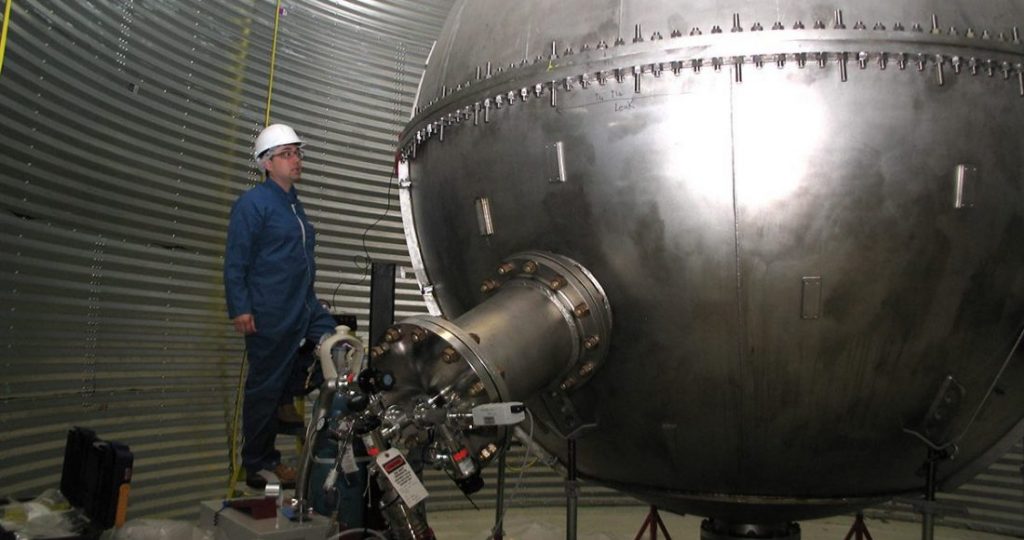DEAP-3600 achieves world-leading result in the search for dark matter

Photo: Luther Caverly
The search for dark matter saw a new development with the latest results from the DEAP-3600 experiment at SNOLAB—a world-class science facility deep underground at Vale’s Creighton nickel mine in Sudbury, Ontario.
Carleton University researchers—as members of a multinational collaboration of 100 scientists across 25 different institutions in nine countries—looked for dark matter particles up to the Planck mass. At 22 micrograms, the Planck mass is about the mass of a grain of sand and the greatest mass an elementary particle could have.
In data collected since 2016 with DEAP-3600, no telltale sign of such a particle was found in the detector. For the first time, researchers were able to rule out the existence of dark matter particles over a very wide range of values in mass and interaction strength. This is the first direct detection constraint on Planck-scale mass dark matter particles.
“We were the first ever to be able to look for particles at this level and have shown that they don’t make up dark matter,” says Mark Boulay, Canada Research Chair in Particle Astrophysics and Subatomic Physics. “After a careful three-year search, we can rule it out
Read the full story on the Carleton Research website.
Read the results on the arXiv.
Read the publication in Physical Review Letters.